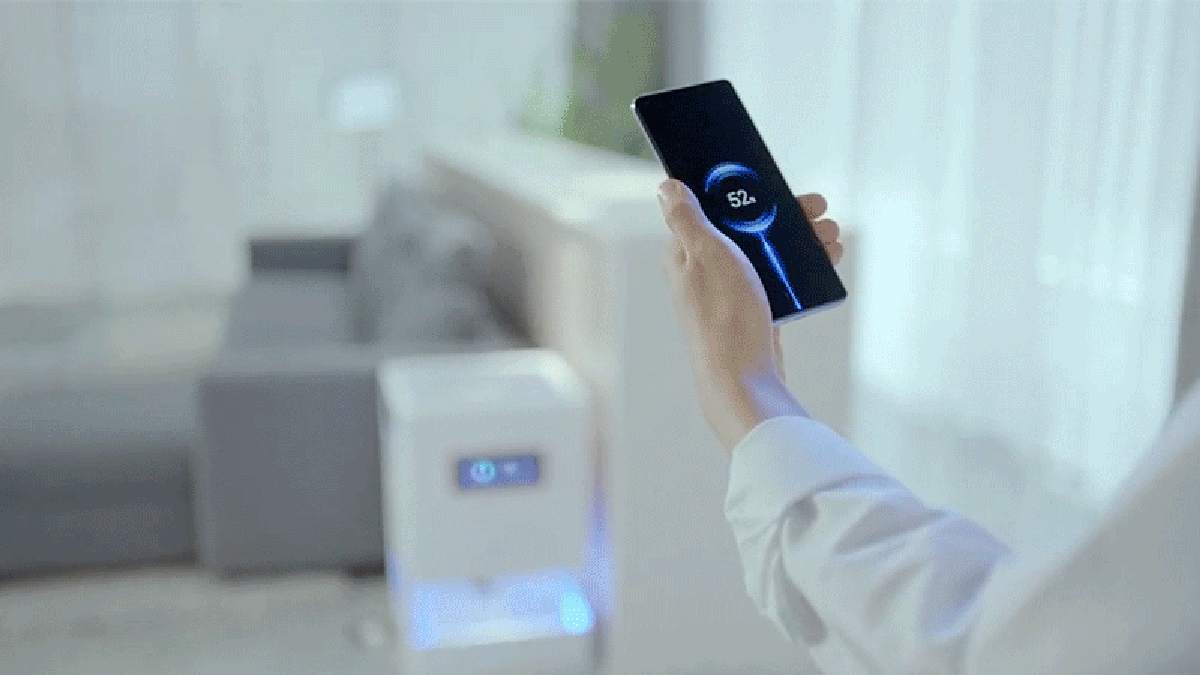
Apple may have struggled to get its AirPower multi-device charging pad to work, but just over the horizon is a new technology that promises to make wireless charging truly wireless, and Xiaomi is the latest company to promise a world without charging cables—we just don’t know when it will actually arrive.
Wireless charging in its current form is definitely convenient since it allows you to just plop a device like a smartphone or headphones down on a pad to top off its battery without having to reach for a cable. But at the same time, it’s also restrictive, requiring you to all but abandon a device on a desk or side table until it’s charged. Truly wireless charging is the ideal solution because as long as you’re in the same room as a wireless power transmitter your phone will charge no matter where it is, even if you’re still using it in hand.
It sounds like total science fiction, but the technology exists, and back in 2016 a company called Ossia demonstrated working prototypes of its Cota wireless charging system at CES. A smartphone (upgraded with a special case) could be carried anywhere around the company’s booth and it would continue to charge indefinitely. Today, Xiaomi announced its own wireless charging eco-system called “Mi Air Charge Technology” that appears to offer similar functionality (and limitations) as Ossia’s Cota tech.
In lieu of wires or a pair of aligned magnetic coils, Mi Air Charge uses a transmitter (that’s about the size of a portable air conditioner) packed with antennas that both accurately determine the location of a device and then use beamforming to broadcast “millimeter-wide waves” towards it. A separate smaller collection of antennas function as a receiver inside another device, converting the wireless signals into about 5-watts of power, which is what the iPhone’s tiny cube charger delivered when plugged into a power outlet.
Xiaomi promises the system can provide power to multiple devices all at the same time, be it a smartphone, a tablet, headphones, or even a pair of wirelessly powered batteries like Ossia also demonstrated a few years ago that ensures legacy devices never need a fresh pair. Distances are still limited to several meters, or roughly the size of an average room, but the technology isn’t hindered by physical obstacles, so the beefy power transmitter can potentially be hidden away out of sight.
It’s exciting to see more companies announce wireless charging solutions like this because it helps legitimize the technology, but unfortunately, to date all we really have are announcements. Since its debut at CES 2016 Ossia still hasn’t launched a wireless charging product available to consumers. And Xiaomi’s announcement today doesn’t even include vague promises about how long it will take the company to make its Mi Air Charge Technology available outside its own R&D labs.
There are considerable challenges to making this technology both safe and reliable, and it’s unfortunately not backward-compatible. Moving forward Xiaomi could include the compact antenna receiver array in its future smartphones, but your iPhone won’t work with the system without a special charging case, or Apple agreeing to play nice with Xiaomi. There’s little doubt truly wireless charging will one day be commonplace—we might even be able to blanket entire cities in wireless power instead of requiring a transmitter in every room of a house—but for now, it still remains nothing more than a tantalizing tech demo.
https://ift.tt/39qVqG2
Technology
Bagikan Berita Ini














0 Response to "Xiaomi Announces a Long-Range Wireless Charger You Probably Won't Be Able to Buy for Years and Years - Gizmodo"
Post a Comment